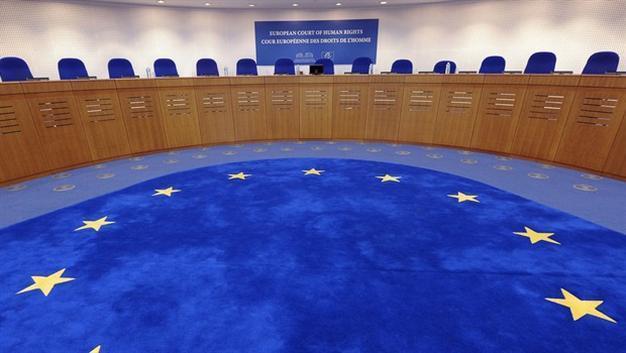ECHR rules Turkey to pay 1 million euros to main opposition CHP
STRASBOURG
 The European Court of Human Rights (ECHR) has ordered Turkey to pay the main opposition Republican People’s Party (CHP) 1 million euros for pecuniary damages over the confiscation of a substantial portion of the party’s assets by the Constitutional Court following an inspection of its accounts for the years 2007 to 2009.
The European Court of Human Rights (ECHR) has ordered Turkey to pay the main opposition Republican People’s Party (CHP) 1 million euros for pecuniary damages over the confiscation of a substantial portion of the party’s assets by the Constitutional Court following an inspection of its accounts for the years 2007 to 2009.The European court concluded that the “high standard of foreseeability required as regards the laws that govern the inspection of the finances of political parties had not been satisfied in the applicant party’s case.”
“Accordingly, the confiscation orders had not been ‘prescribed by law,’ in breach of Article 11,” it added.
The asset confiscation came after a Constitutional Court inspection required by the Turkish constitution. As a result of the inspection, while the Turkish court had found that the income and expenses were “financially accurate and that the income had been mostly in compliance with the applicable rules under the Political Parties Act,” it also concluded that “some expenses incurred in the periods under review had been in violation of that Act.”
The CHP, in return, complained that the confiscation had put a “substantial financial strain on its political activities” and applied to the ECHR in 2013.
Meanwhile, in another ruling concerning Turkey, the ECHR has ruled that its article regarding “right to life” was violated when Turkish authorities failed to conduct an “adequate” investigation into the death of Hüseyin Başbilen, an engineer who worked for a Turkish defense contractor and was found dead in his car with his throat and left wrist slashed in 2006.
In its April 26 ruling, the court ruled Turkey must pay 20,000 euros to Başbilen’s parents, Vehbi and Keziban Başbilen, who lodged an application to the ECHR after a series of legal processes that caused the stalling and delay of their son’s case.
At the time of Başbilen’s death, an Ankara prosecutor’s office had opened an investigation and concluded after examining evidence and an autopsy that Başbilen’s death was suicide, not a murder, despite his parents’ claims otherwise, and closed the investigation.
A second investigation was launched into the death in 2010 after his twin brother filed a criminal complaint over media reports of “foreign intelligence services stealing important weapons technology, killing those who had not wished to collaborate with them and making their murders look like suicides.”
In regards to the second investigation, the ECHR ruled that Turkish authorities had not been “capable of rectifying the shortcomings of the first investigation due to the passage of time and, in any case, it was still pending more than nine years.”
Before his death, Başbilen was working as an engineer at Aselsan, a leading Turkish defense manufacturer based in capital Ankara.
















